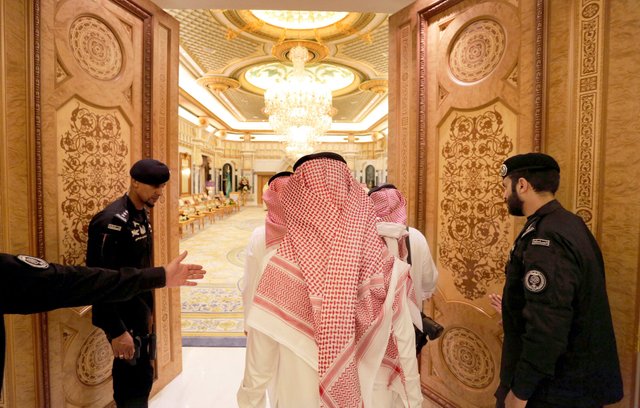Former Saudi crown prince Prince Mohammed bin Nayef was exiled and set up last week at his palace in Jeddah on the Red Sea, US officials said.

The New York Times quoted four former and current Saudi and US officials as saying that the move was an attempt to ensure that Nayef did not challenge his 31-year-old successor, the modern face of Saudi Arabia and King Salman's son, Mohammed bin Salman.
According to the US newspaper, restrictions on Ben Nayef's moves came after the reshuffle on Wednesday, but it is not clear how long it will last.
In the cabinet reshuffle, King Salman appointed Abdul Aziz bin Saud, 33, as the son of Nayef as interior minister.
But Riyadh, according to a report by the Newsweek magazine entitled "The next king of Saudi Arabia is going to secure power by restricting power within the palace" was suffering from pains to show the royal family in Saudi Arabia as a unified front after the earthquake, and despite the emergence of the new crown prince and accepting the hand of his uncle, . Despite his pledge of allegiance to his nephew in a public display of support after the decision.
This continued according to the American magazine after reports emerged that the arrest of Ben Nayef. A senior Saudi official told Reuters that media speculation based on anonymous sources was "completely false and baseless."
The official said nothing had changed in Nayef's daily duties without giving up his role.
"His Royal Highness Prince Mohammed bin Nayef and his family are moving freely and hosting guests without restriction. Nothing has changed for Prince Mohammed, except for abandoning his government position," the official said. "He hosts guests and leaves his home on a daily basis since he stepped down, and there are no restrictions on his movement, whether inside or outside Saudi Arabia."
He helped suppress al Qaeda in the country between 2003 and 2006 and had close ties to Saudi allies such as Britain and the United States and their intelligence services. Some saw the rise of Ibn Salman as a leap on many older princes. Ibn Salman is seen as an ambitious figure of global standing and has made official visits to meet with US presidents Barack Obama, Donald Trump in Washington and Vladimir Putin in Moscow instead of his aging father.
But as Saudi defense minister, he also led the kingdom's long war in Yemen.
Ibn Salman, described by diplomats as "master of everything" because of his authority, leads a reform program known as Vision 2030, aimed at appeasing Saudis over the age of 25. It seeks to bring about social and economic change while diversifying the country's economy away from oil.